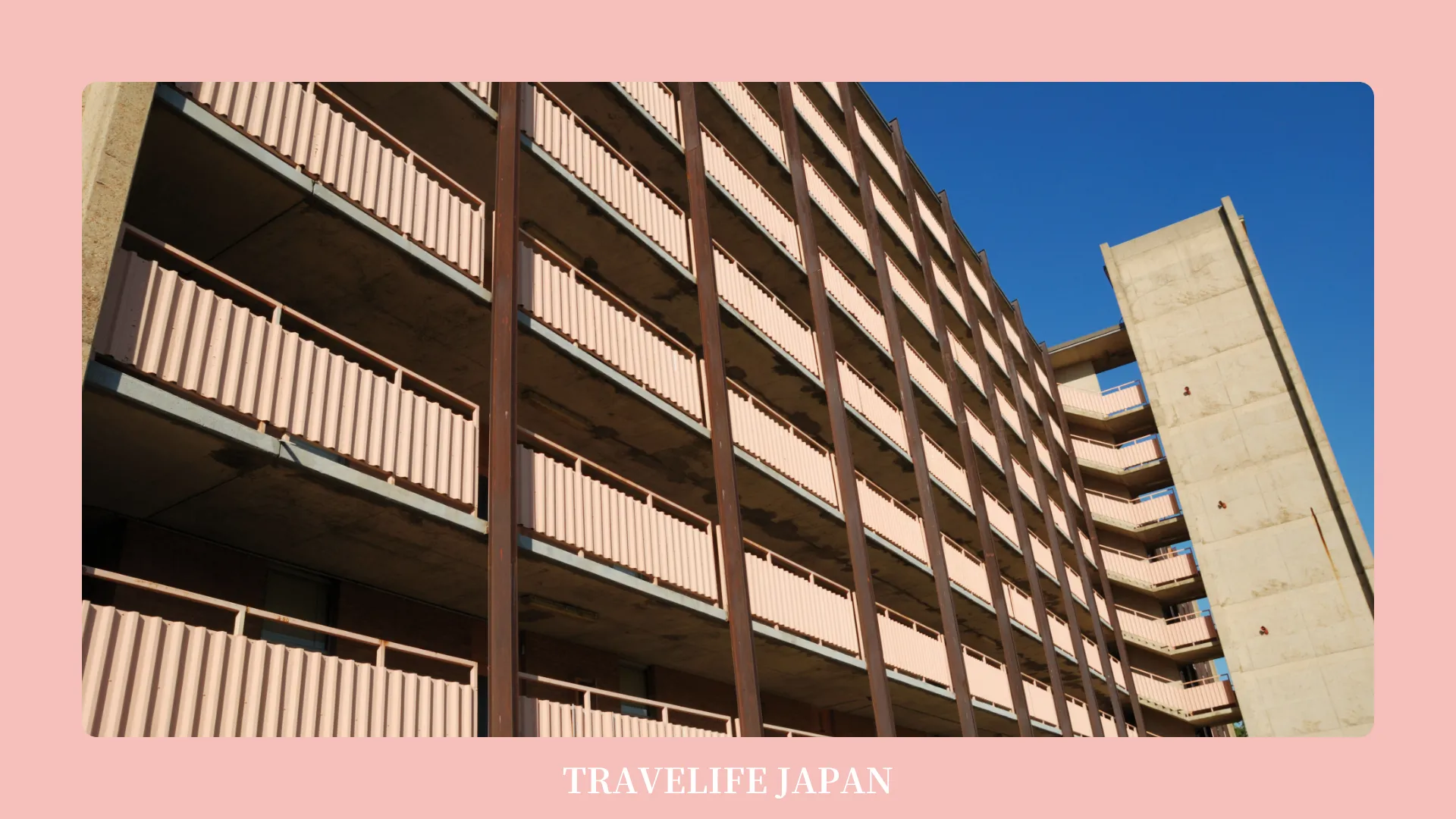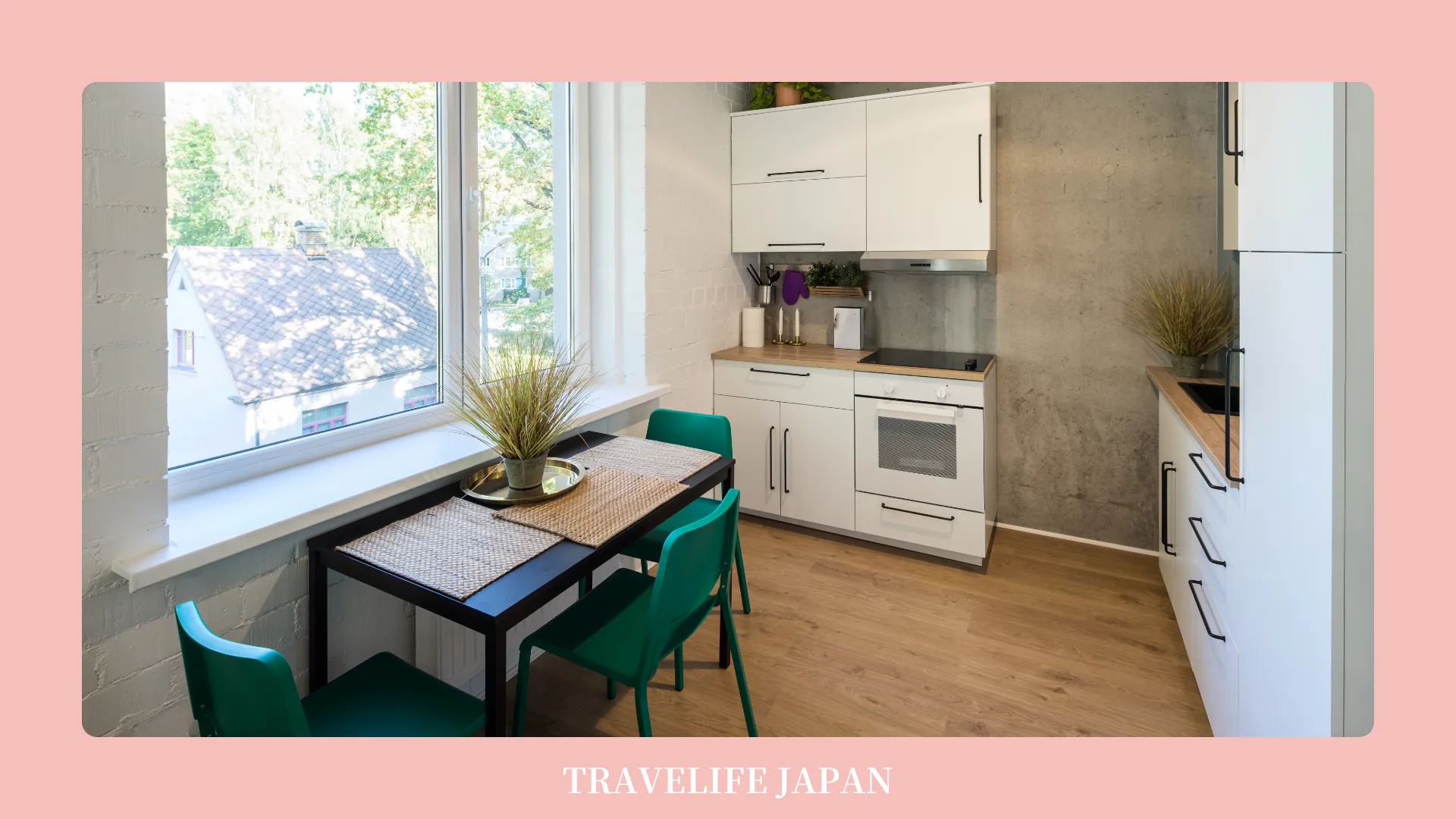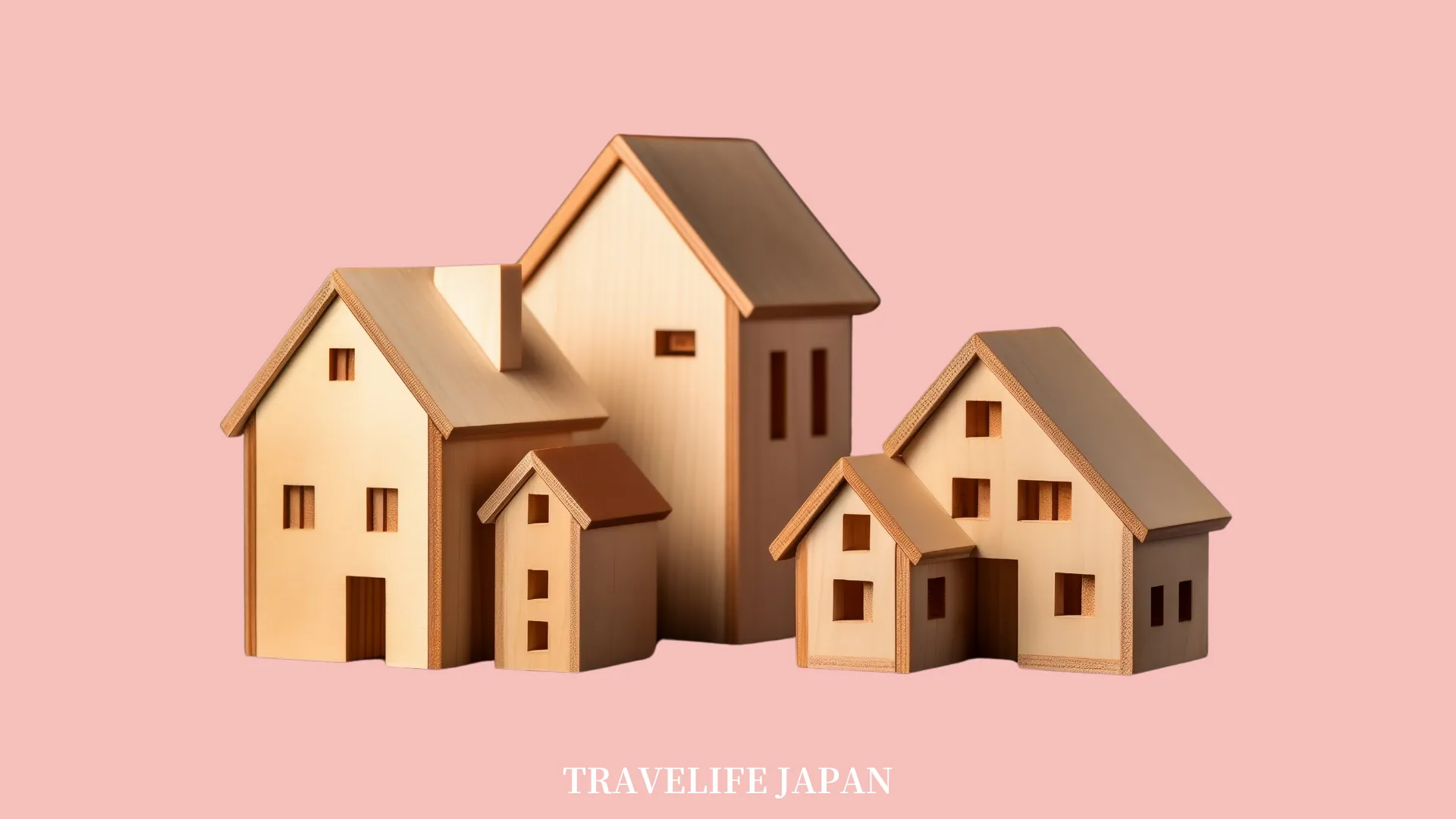Are you planning to study in Japan and wondering where to stay? Choosing the right accommodation is crucial for a fulfilling educational journey. This comprehensive guide explores various student housing options in Japan, detailing their advantages and disadvantages to help you find the perfect match based on your budget, preferences, and lifestyle.
Want to learn Japanese in Japan? Ask any questions!
Apply with Travelife Japan to receive personalized guidance, application support, and a smoother enrollment experience.
Dormitories in Japan

Dormitories in Japan vary widely in terms of size, amenities, and rules, but they generally share certain characteristics. They are often located on or near campus, providing easy access to classes and university resources. This proximity can be a significant advantage, especially for those new to Japan, as it simplifies transportation and helps students acclimate to their new surroundings.
The living arrangements in dormitories can range from single rooms to shared rooms with multiple occupants. Common areas like kitchens, bathrooms, and lounges are usually shared among residents. These shared spaces are not just practical; they are the heart of the dormitory’s social life, where students gather to study, socialize, and share experiences.
Recommendations for Students Considering Dormitory
- Early Application
Dormitory spaces can fill up quickly, so it’s advisable to apply as early as possible. - Engage with the Community
Take advantage of the social opportunities dormitories offer. This is a great way to make friends and find study partners. - Understand the Rules
Be aware of and respect the dormitory rules, which may include curfews and restrictions on guests. - Embrace the Experience
Living in a dormitory can be a significant cultural and personal growth experience. Be open to learning from those around you.
Pros
- Affordability: Dormitories are typically more cost-effective than other housing options.
- Built-in Community: They provide an instant social network, which can be particularly beneficial for international students.
- Convenience: Close proximity to campus facilities and resources.
- Inclusive of Basic Amenities: Most dormitories come furnished and may include utilities in the rent.
Cons
- Limited Privacy: Shared rooms and common areas mean less personal space.
- Strict Rules: Curfews and other regulations may be in place to maintain order.
- High Demand: The popularity of dormitories can make securing a spot challenging.
Share House in Japan

Japanese share houses typically consist of private bedrooms for each tenant, with communal areas such as kitchens, living rooms, and bathrooms. These shared spaces foster a sense of community and provide opportunities for residents to interact, cook together, and share experiences. The setup is ideal for those who enjoy socializing but also appreciate having a personal retreat.
Many share houses in Japan are designed with specific themes or focuses, such as language exchange, artistic pursuits, or even eco-friendly living. This can provide a unique living experience tailored to your interests. Additionally, these residences are often equipped with modern amenities and may include services like cleaning of communal areas, which adds to the convenience.
Recommendations for Students Considering Share Houses
- Choose the Right House
Research different share houses to find one that matches your lifestyle and interests. - Socialize and Engage
Take advantage of the communal environment to make friends and engage in cultural exchange. - Respect Shared Spaces
Be mindful of cleanliness and etiquette in communal areas - Understand the Rules
Each share house has its own set of rules, so make sure you’re comfortable with them before moving in.
Pros
- Affordable Living: Share houses are generally cheaper than renting an entire apartment.
- Social Environment: Offers ample opportunities for socializing and making new friends.
- Inclusive of Amenities: Utilities and furniture for shared spaces are typically included.
- Flexibility: Shorter lease terms compared to traditional apartments.
Cons
- Shared Facilities: Kitchens, bathrooms, and living areas are communal, which might not suit everyone.
- Privacy Concerns: While you have a private room, the level of overall privacy is less than living alone.
- Privacy Concerns: While you have a private room, the level of overall privacy is less than living alone.
Apartments in Japan

Apartments in Japan are known for their efficient use of space, often incorporating innovative design elements to maximize functionality in a compact area. They come in various types, such as 1R (a single room), 1K (a room with a kitchen), and 1LDK (a living room, dining room, and kitchen, plus a bedroom). The choice depends on your space requirements and budget.
Renting an apartment in Japan involves some unique practices. Key money (reikin), a non-refundable payment to the landlord, and a security deposit (shikikin) are common requirements. Additionally, you may need to pay a finder’s fee to a real estate agent and purchase furniture and appliances, as many apartments come unfurnished.
Recommendations for Students Considering Apartment
- Budget Accordingly
Factor in initial costs like key money, security deposit, and agency fees, as well as ongoing expenses such as rent, utilities, and internet. - Start Early
Begin your apartment hunt well in advance to find the best options and deals. - Seek Assistance
Utilize services that cater to foreigners, as they can provide valuable assistance in navigating the rental process. - Understand the Contract
Be fully aware of the terms of your lease, including duration, renewal policies, and maintenance responsibilities.
Pros
- Privacy and Independence: Enjoy your own space without the need to share facilities.
- Customization: Freedom to decorate and arrange your living space as you like.
- Variety of Choices: A wide range of options in terms of size, location, and price.
Cons
- Higher Costs: Rent, utilities, and initial costs can be substantial compared to other housing options.
- Furnishing Expenses: Most apartments come unfurnished, requiring additional investment in furniture and appliances.
- Complex Procedures: The process of renting can be challenging, especially with language barriers and unique Japanese rental practices.
Homestay in Japan

In a homestay, you are accommodated in a private room within a family’s home. You become a part of their daily routines, often sharing meals, participating in family activities, and experiencing traditional Japanese lifestyle firsthand. This setting allows for a deeper cultural exchange and language practice in a natural environment. Families hosting students are generally very welcoming and interested in cultural exchange, providing a supportive and engaging atmosphere.
Homestays can vary widely in terms of location, type of household (e.g., with or without children, elderly members), and the level of interaction expected. Some may offer a more independent experience, while others might involve you more in family activities. It’s important to communicate your preferences and expectations beforehand to ensure a good match.
Recommendations for Students Considering Homestay
- Communicate Clearly
Discuss your preferences, dietary restrictions, and expectations with the host family beforehand - Engage with the Family |
Participate in family activities and be open to new experiences. - Respect House Rules
Every household has its own set of rules and customs; respecting these is crucial for a harmonious stay. - Be Open to Cultural Differences
Embrace the unique aspects of living with a Japanese family, including different customs and daily routines.
Pros
- Cultural Immersion: Live like a local and gain insights into Japanese culture and family life.
- Language Practice: Daily interactions with the host family enhance language skills.
- Inclusivity: Most homestays include meals and basic amenities, reducing living expenses.
- Supportive Environment: Host families can provide guidance and support as you navigate life in Japan.
Cons
- Higher Cost: Homestays can be more expensive than other accommodation options, especially for long-term stays.
- Limited Independence: Living in someone else’s home means adhering to their rules and schedules.
- Privacy Concerns: While you have a private room, overall privacy is less than living alone.

Average Accommodation Rent Across Japan’s Regions
When planning to study in Japan, understanding the cost of living, particularly accommodation expenses, is crucial. The average rent varies significantly across different regions and types of accommodations. This data provides a comprehensive overview of the estimated monthly rent for student accommodations in Japan’s eight major regions: Hokkaido, Tohoku, Kanto (including Tokyo), Chubu (including Nagoya), Kinki (including Osaka and Kyoto), Chugoku, Shikoku, and Kyushu/Okinawa.
The categories covered include dormitories, share houses, apartments, and homestays, offering insights into the range of costs you might expect in each region. This information is invaluable for budget planning and understanding the financial aspects of living in various parts of Japan. Keep in mind that these figures are approximations and actual rent can vary based on specific location, housing conditions, and market changes.
| Region | Dormitories | Share house | Apartments | Homestay |
|---|---|---|---|---|
| Hokkaido | 20,000-40,000 | 25,000-50,000 | 30,000-60,000 | 50,000-80,000 |
| Tohoku | 15,000-35,000 | 20,000-45,000 | 25,000-55,000 | 45,000-70,000 |
| Kanto incl.Tokyo | 30,000-80,000 Tokyo: 35,000-100,000 | 40,000-100,000 Tokyo: 50,000-120,000 | 50,000-120,000 Tokyo: 60,000-150,000 | 70,000-120,000 Tokyo: 80,000-150,000 |
| Chubu incl.Nagoya | 25,000-60,000 | 30,000-70,000 | 35,000-80,000 | 50,000-90,000 |
| Kinki incl.Osaka/Kyoto | 30,000-70,000 | 35,000-80,000 | 40,000-90,000 | 60,000-100,000 |
| Chugoku | 20,000-50,000 | 25,000-60,000 | 30,000-70,000 | 50,000-80,000 |
| Shikoku | 18,000-45,000 | 20,000-50,000 | 25,000-60,000 | 45,000-75,000 |
| Kyushu/ Okinawa | 20,000-50,000 | 25,000-55,000 | 30,000-65,000 | 50,000-80,000 |
Conclusion
Selecting the right accommodation is crucial for a fulfilling study experience in Japan. Whether you prefer the community feel of a dormitory, the balance of a share house, the independence of an apartment, or the cultural immersion of a homestay, there’s an option that aligns with your needs and goals. Consider your priorities and budget carefully to make the best choice for your educational journey in Japan.
CONTACT US
For studying Japanese in Japan, please contact us.

